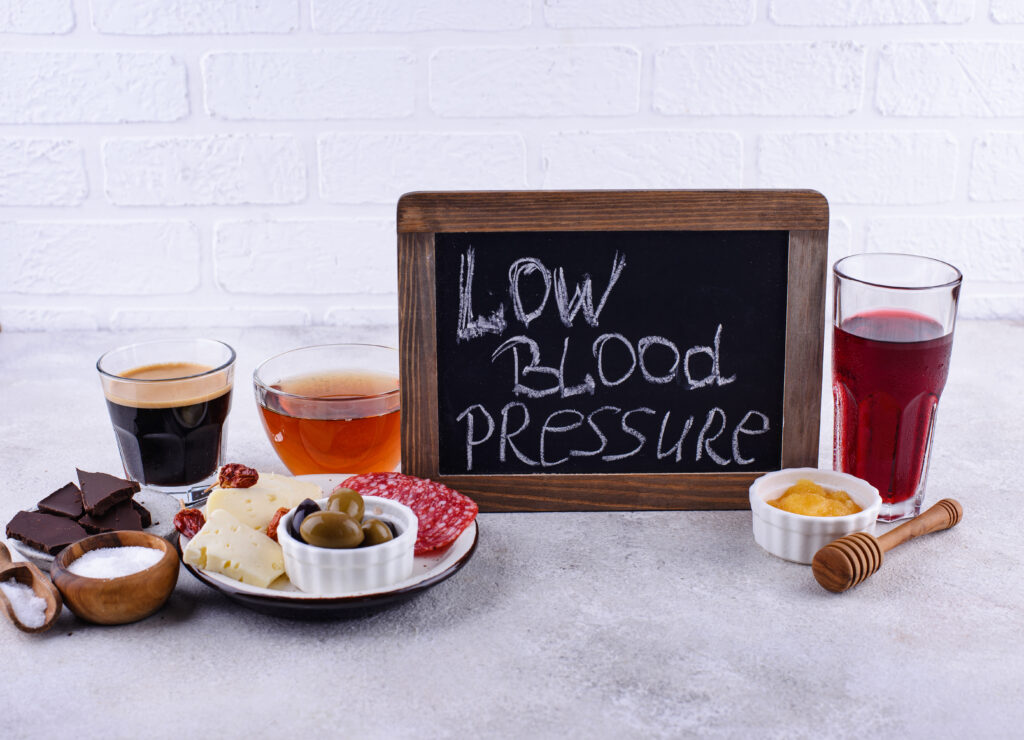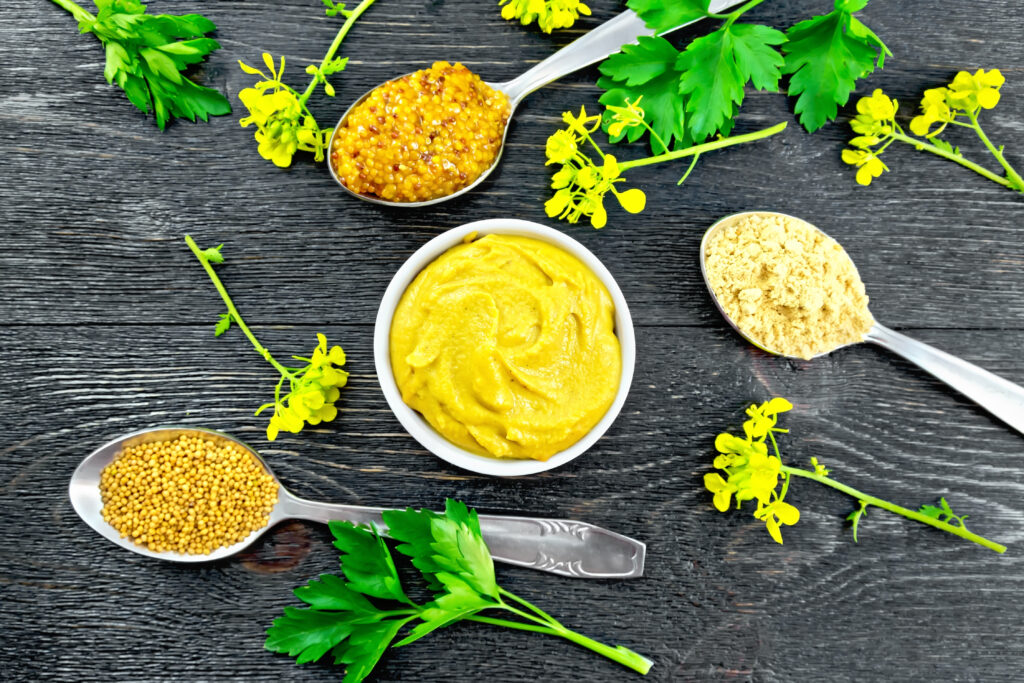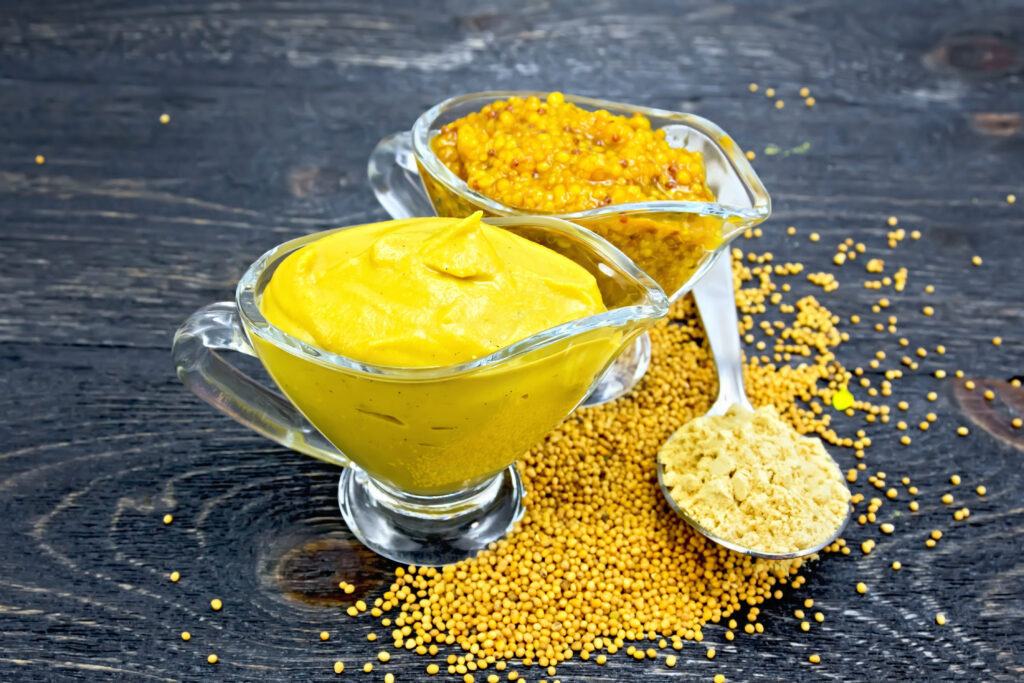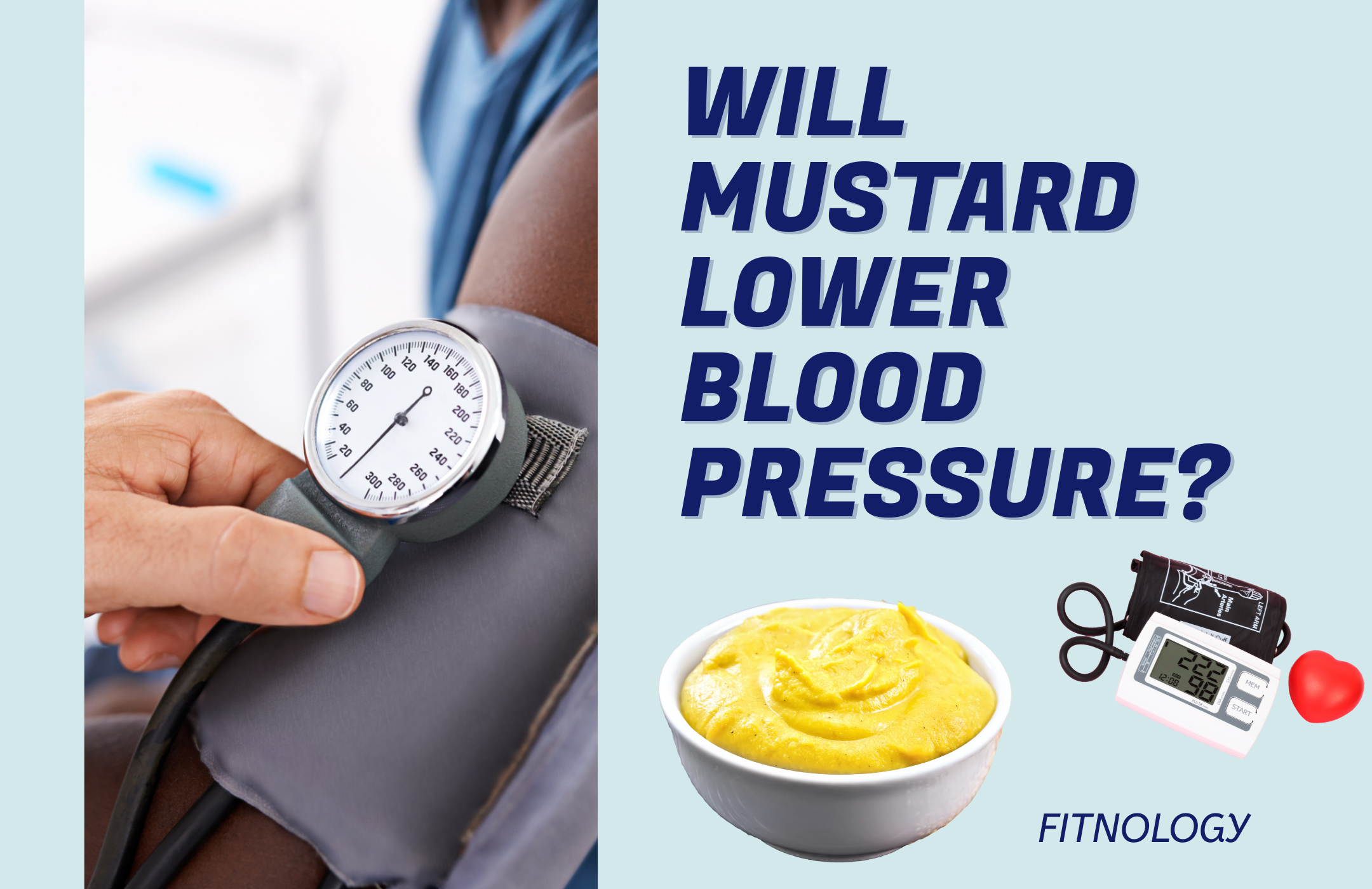Introduction:
Hypertension is an issue that affects millions of people around the world. High blood pressure is a major risk factor for strokes, heart disease, and other serious health conditions. The question is WILL MUSTARD LOWER BLOOD PRESSURE ?. Although medications may be the first choice for some, diet can play an important role in controlling blood pressure. The potential blood pressure effects of mustard, an everyday condiment, have gained attention. Can something as simple as mustard make a difference? Explore the science and your personal experience to discover the truth.

The Science Behind Mustard’s Components
Mustard is made from mustard seeds and contains nutrients such as magnesium, potassium, and Omega-3 fatty acids. It is well known that these nutrients support heart health. Potassium helps balance sodium in the body, which regulates blood pressure. Magnesium can lower blood pressure by relaxing blood vessels. Omega-3 fatty acids, even though they are present in small amounts, are linked with reduced inflammation and improved heart health.
Mustard contains compounds that have antioxidant properties, such as glucosinolates. These compounds combat oxidative stresses, which are a factor in hypertension. In a study in the Journal of Nutrition, these compounds were found to support blood vessel function and indirectly help manage blood pressure.
Case Studies Highlighting Mustard’s Impact
In several case studies, a link between consumption of mustard and lower blood pressure has been found. One small study with 50 mildly hypertensive participants showed that those who consumed mustard for 6 weeks saw a slight decrease in both systolic (high blood pressure) and diastolic (low blood pressure). Researchers stressed that while the findings were encouraging, mustard is not meant to replace standard treatment.
Another study found that mustard oil used for traditional South Asian cooking was associated with better cardiovascular outcomes. Regular mustard oil users had lower hypertension rates than those who used alternative oils. This study suggests that mustard oil may be a useful food to promote heart health.

My Personal Take on Mustard and Blood Pressure
I’ve always been fascinated by how small changes to diet can make a big difference in health. When I read about the health benefits of using mustard to lower blood pressure, it made me eager to give it a try. I thought, “How big a change can this really be?” After incorporating one teaspoon of mustard in my meals every day for a whole month, I was surprised to find that my energy levels increased. Although I did not measure my blood pressure consistently, I observed fewer headaches. This is a symptom that I sometimes experience in high blood pressure.
It was fascinating to me how easily I could include mustard in my diet. It was added to marinades and salad dressings. I even put a little on my sandwiches. It didn’t seem like an effort, so I was able to sustain it.
Practical Ways to Use Mustard for Blood Pressure
- Salad dressing: Combine mustard, olive oil, and vinegar to make a healthy salad dressing.
- Mustard oil is a good alternative to cooking oils when you are sautéing or stirring.
- Spread mustard over sandwiches, or use it as a dip with vegetables.
- Marinates: Mix mustard and herbs with spices to create flavorful marinades for meat or tofu.
- Add a little mustard to soups or stews for a richer flavor.
- Sprinkle mustard powder into your dishes to give them a subtle kick.
The Role of Lifestyle Changes
Although mustard may have some benefits, managing high blood pressure is a complex process that requires an integrated approach. Exercise, stress reduction, and sodium restriction are all proven methods. It’s important to include mustard in a healthy diet. However, it is not the only solution.
My Observations on Diet and Health
When I try a new diet, I approach it patiently and with an open-minded mind. The biggest lesson I learned from adding mustard to my diet was that small but powerful changes are possible. This wasn’t about adding mustard; this was about taking charge of my health. I became more aware of other aspects of my eating habits, such as consuming more whole grains and reducing the amount of processed food.
Consistency was a challenge. There were times when I forgot the mustard, but I didn’t feel guilty because I remembered that this was not a race; it was a journey.

Common Myths and Misconceptions
Some people may think that mustard can cure high blood pressure. Set the record straight. While mustard contains nutrients that promote cardiovascular health, this is not a miraculous food. The best results are achieved when combined with healthy lifestyle habits. A second myth holds that all mustard is beneficial. The processed mustards that are loaded with preservatives and sodium may be more harmful than beneficial. Choose low-sodium organic products whenever you can.
How Mustard Fits Into a Balanced Diet
It is easy to incorporate mustard into meals. The tangy taste of mustard pairs with many dishes. Moderation is the key. Even good things can be harmful if consumed in excess. Focus on small, consistent amounts of everything. Take a diet which is rich in vegetables and fruits, protein and whole grains.
Explore the heart-healthy benefits of mustard: from potassium to mindful eating:
Blood pressure and sodium: A link between them
We all know that salt increases blood pressure. Did you know that mustard is a solution to high blood pressure? The majority of mustards are low sodium by nature and, therefore, a better alternative than other condiments such as ketchup or soy sauce, which can be high in salt. You can reduce your sodium consumption by switching to mustard without losing flavor.
Mustard: Potassium is a powerful ingredient
Mustard is a good source of potassium, which helps to maintain heart health. Potassium helps balance sodium’s effects, which is why it is important for blood pressure regulation. The Mustard can be a powerful tool in maintaining cardiovascular health when combined with potassium-rich foods such as bananas or leafy greens.
Mustard Oil: Healthy Alternative to Regular Oil
Mustard oil can be used by those who want to increase their intake of mustard. The Mustard oil, which has been used in Asian cooking for centuries, contains monounsaturated fatty acids and omega-3. This oil is a good addition to cooking because it helps reduce cholesterol and supports heart health.

The Quick and Easy Recipe for Mustard to Improve Your Health
Try this recipe if you want to add more mustard to your diet: To create a salad dressing with tang, combine mustard, olive oil, lemon juice, and honey. Olive oil, lemon, honey and mustard are a combination that is rich in antioxidants, healthy fats for the heart, as well as Vitamin C.
Mustard is a natural antioxidant.
Do you know mustard is rich in antioxidants? They are antioxidants that fight the oxidative stresses in our bodies, which can lead to hypertension and heart disease. You can help your body fight free radicals by regularly eating mustard.
The role of mindful eating in blood pressure management
It’s not wise to rely on one food. Mindful eating can improve your health by allowing you to take your time and enjoy your meals while listening to your body. Slowly eating, and paying attention to the portion size, can reduce stress and help prevent overeating. This will also help to keep your blood pressure steady.
Nutritional Profile of Mustard:
Mustard is a product of mustard seeds. They contain a variety of important minerals. They’re full of essential fat acids and vitamin K (especially vitamin K vital to maintain blood quality) as well as minerals such as Selenium and magnesium. These minerals can aid in general heart well-being. The antioxidants in particular could assist in combating the oxidative stress that is linked to hypertension. Being aware of the advantages of nutrition of mustard can be helpful when understanding the effect it can provide in the reduction of blood pressure.
Role of Potassium:
Potassium is an important mineral in regulating blood pressure. It is able to counteract the effect of sodium on the body. This helps blood vessels to ease tension and relax. Certain varieties of mustard, particularly ones with seeds that are whole or those that have less processing offer a little potassium. Incorporating potassium-rich foods into your diet can result in reduced blood pressure which is why it’s important to consider mustard as an element of an overall diet plan.
Anti-inflammatory Properties:
Chronic inflammation is a major cause of various health problems like hypertension. Mustard seeds are rich in components like glucosinolates as well as omega-3 fatty acids. These might have anti-inflammatory properties. By the reduction of inflammation, these compounds will improve the overall condition of your blood vessels and help improve blood pressure control.
Effects of Mustard on Circulation:
The ability to flow blood efficiently is vital to maintain the blood pressure that is high. There is evidence that suggests mustard’s components can improve circulation, and increase the circulation of blood. It is known that it is rich in magnesium that assists in the dilation of blood vessels that aid in the flow of blood.
Dietary Studies and Research:
An examination of the scientific literature could provide useful information about the connection between consumption of mustard and blood pressure-related outcomes. However, more precise studies regarding mustard specifically aren’t yet available but some research studies have addressed the effects of mustard seeds’ components on heart health and inflammation. A spotlighting of studies that demonstrate positive or neutral associations with blood pressure can help users to understand the implications of the scientific research that explains the benefits that mustard could bring.
Integrating Mustard into the Healthy Diet:
If you’re looking to reap the benefits that mustard can bring specific guidelines on how to integrate the condiment into their daily diets is crucial. The use of mustard as a flavoring as a marinade, dressing and sauces will increase the flavor of food while also providing positive health advantages. In addition, highlighting the role of mustard in the context of a balanced diet that is rich in fruit, vegetables whole grains, protein sources that are lean can support the notion that mustard is an element of a comprehensive strategy to ensure good blood pressure.
Mustard: My final thoughts
After reflecting on my own experience, I realized just how many simple solutions we often overlook. It’s not just about the condiment. Mustard can be a great reminder of how nature provides many tools for our well-being. We can create a better foundation by embracing small positive changes.
It’s not that mustard changed my life overnight. But it was part of the bigger picture. These cumulative efforts are what make a difference. If you are considering adding mustard to your daily routine, it’s definitely worth a try.

Conclusion: The Bottom Line on Mustard and Blood Pressure
Does mustard reduce blood pressure? Evidence suggests that mustard may help lower blood pressure, particularly when combined with a heart-healthy diet. The nutrients in mustard, like potassium and magnesium and the bioactive components, may help improve vascular health. Mustard is not a cure-all. Consider it a supporting player in your overall health plan.
It is easy to incorporate mustard into your diet. For best results, combine it with regular exercises, stress management and other dietary adjustments. It’s not about being perfect; health is about making sustainable, consistent choices. Mustard could be among them.
FAQs
Can mustard help lower blood pressure?
Mustard contains potassium and magnesium, which are good for blood pressure, particularly when combined with heart heart-healthy diet.
Mustard oil is better than regular mustard?
The benefits of mustard oil are numerous. The food contains omega-3 fats and other healthy fats. It can also lower cholesterol.
What is the best way to incorporate mustard into my diet?
Use mustard oil to cook or add it to soups, salads, marinades, and sandwiches.
Is mustard high in sodium?
The majority of mustard varieties are low sodium by nature, which makes them healthier than ketchup and soy sauce.
Mustard as a substitute for medication to treat high blood pressure
Mustard is not meant to replace prescribed medication. It can, however, be an important part of a heart-healthy, broader lifestyle.
What is the potassium content in mustard?
Potassium balances the sodium effects in the body and helps regulate blood pressure.
When will I see the effect of mustard on my blood pressure?
You may see different results, but if you include mustard in your diet regularly over time, it can support a healthier blood pressure level. Combine it with healthy lifestyles.
Mustard is safe to consume by everyone?
Most people can safely eat mustard in small amounts. You should not eat mustard if you are allergic to the seeds. If you are concerned, always consult your healthcare provider.
What are some other foods that I can eat to lower my blood pressure?
Foods like bananas and avocados can also help lower blood pressure.
Mustard can I use for cooking?
Yes! Yes!


